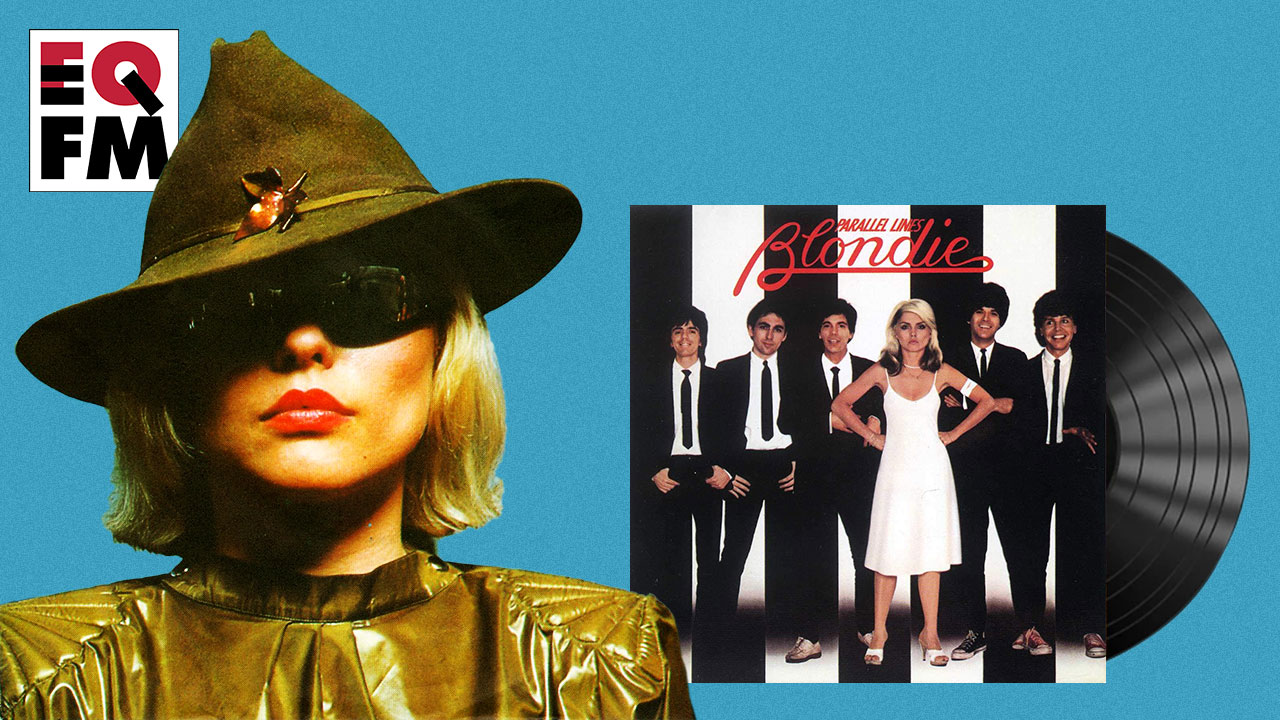Blondie: Parallel Lines

Blondie's Debbie Harry (Blondie promo photo by DH Lores, 1979)
Album ReCue, a part of FUV's new EQFM initiative, takes an on-air and online look back at influential releases by women that altered our perspective not only of the artist, but her invaluable impact on music history. Above, listen to a conversation with Alisa Ali and Janet Bardini about Blondie's Parallel Lines and below, Laura Fedele's overview.
My first glimpse of Blondie was on MTV: an electronic beat kicks in behind a close-up shot of a woman with obviously dyed hair. Her voice rings in, clear and high and dreamy, as she stiffly jerks her shoulders to the beat: "Once I had a love, and it was a gas..." She was so cool, they were all so cool, and I sat on the floor to wait for it to come back up in the rotation again, which wasn't long. And there was more—"I’m gonna getcha, getcha, getcha, getcha"—and my sisters and I couldn't wait until Christmas morning to unwrap Parallel Lines and play it on the family stereo, over and over.
I was just a few years too young to know about CBGB, about the Lower East Side, about punk culture and mosh pits and the Sex Pistols. Blondie was the doorway to that world for me and about a million teens, who pushed that album past platinum sales levels. The songs were hooky, the fashion was a clashy mix of France and trash (and vaudeville), and they were so bold, so sure of themselves.
Debbie Harry up front, Chris Stein on guitar, Clem Burke on drums, Jimmy Destri on keys, Nigel Harrison on bass and Frank Infante on guitar—as hard as they tried at the time to be recognized as a band, it was the blonde in front of Blondie who dazzled. She so clearly seemed to be in charge of this new thing, this rough rock with a disco sheen, in torn tights and high heels and an attitude that gave no f**ks before that was a thing.
Ask Lady Gaga what kind of effect “the most legendary woman in rock” had on her. Or Shirley Manson: “Debbie has been one of my touchstones throughout my life… She’s very special and unlike a lot of very successful, beautiful women, she’s incredibly generous to all of the other women around her.”
Or let Harry speak for herself: “The only place left for rock to go is toward more girl stars. There’s nothing left for men to do. There’s bound to be more male stars, but they can’t express anything new.”
Now I know, we all know, that Blondie was part of a rush of innovative, original bands that coalesced around a time and place that was singularly New York in the ‘70s, that would burst open and give us the Talking Heads, Patti Smith, the B-52’s—kings and queens of what would be called New Wave, what would birth whole industries of hair products and pre-ripped jeans and the late great WLIR radio.
Don’t forget that the pearl in that oyster is a truly great album, even if producer Mike Chapman can be credited with much of the work involved, one that captured a moment and created a culture. From “Hanging on the Telephone” (who’d make her wait?) to the sad ballads (no wonder she never smiles), Parallel Lines gave the world an icon any young woman could learn a lot from.
Listen
WFUV's EQFM Album ReCue: Blondie's Parallel Lines

